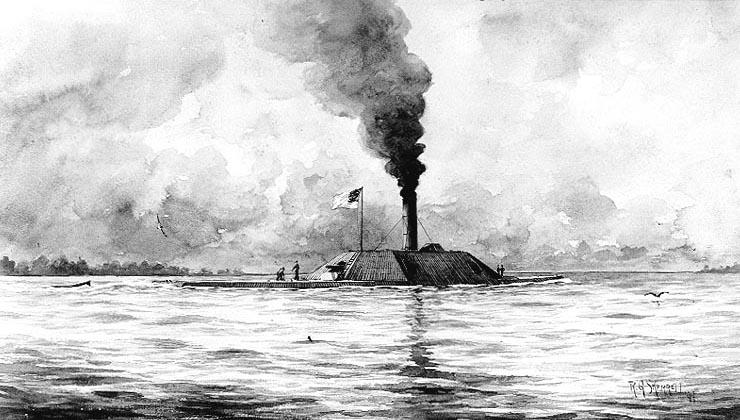By late 1864, it was becoming clear that the South could not win the war. Atlanta fell to Union forces in September, and two months later Union General William Sherman began his "march to the sea," with soldiers destroying supplies and tearing up railroads along the way. In March he reached North Carolina, and by then, Union forces had taken Wilmington and cut off the "lifeline of the Confederacy." In April, General Lee surrendered at Appomattox, Virginia, and on April 26, Confederate General Joseph Johnston surrendered his army to Sherman near present-day Durham.
In this chapter, we'll examine the events of the war's last year, why the South could no longer continue fighting, and the terms of Johnston's surrender.
Section Contents
- Timeline of the Civil War, August 1864-May 1865
- North Carolina as a Civil War Battlefield, November 1864-May 1865
- Primary Source: The Destruction of the CSS Albemarle
- Wilmington, Fort Fisher, and the Lifeline of the Confederacy
- Primary Source: Lincoln's Plans for Reconstruction
- Primary Source: An Account of Stoneman's Raid
- Sherman's March Through North Carolina
- Primary Source: "Where Home Used to Be"
- Primary Source: The Battle of Bentonville
- The Assassination of Abraham Lincoln
- Johnston Surrenders
- Mustering Out of the Confederate Army
- Primary Source: Parole Signed by the Officers and Men in Johnston's Army
- Primary Source: "For us the War is Ended"
- Primary Source: "Can the very Spirit of Freedom Die out?"
- Primary Source: Catherine Anne Devereux Edmondston and the Collapse of the Confederacy
- Primary Source: May 1865 Advertisements
